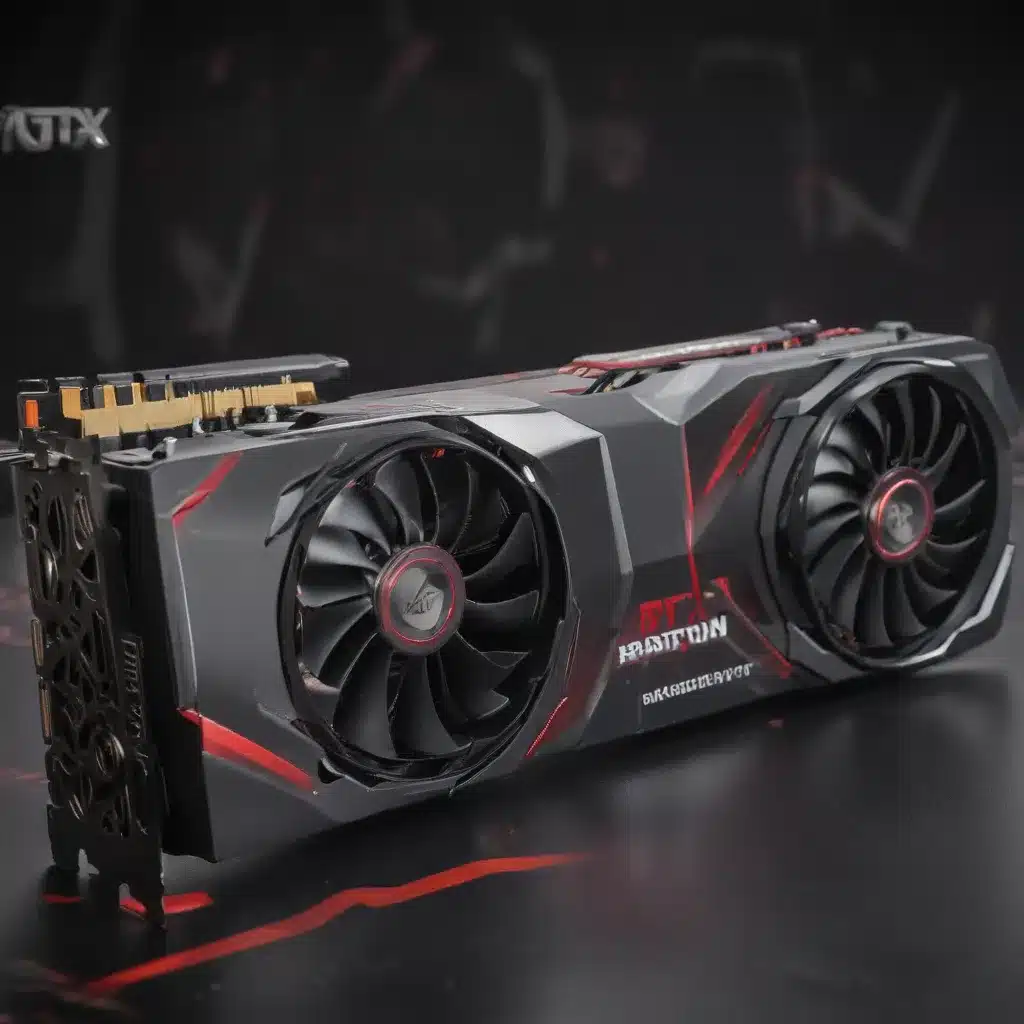
The Battle for 1440p Supremacy
In the ever-evolving world of PC gaming, the competition between AMD and NVIDIA graphics cards is always a hot topic. As the latest high-end offerings from both camps, the Radeon RX 7800 XT and the GeForce RTX 4070 Ti have been the subject of much debate and speculation among enthusiasts. In this comprehensive article, we’ll dive deep into the technical specifications, benchmark results, and real-world gaming performance of these two powerhouses to help you determine which one is the better choice for your 1440p gaming setup.
Specifications and Architecture
Starting with the fundamentals, the Radeon RX 7800 XT is built on AMD’s cutting-edge RDNA 3 architecture, which promises significant improvements in efficiency and performance over its predecessor, the RDNA 2-based RX 6800 XT. The RX 7800 XT boasts 5,376 stream processors, a base clock of 2.0 GHz, and a boost clock of 2.5 GHz, all while being manufactured on a 5nm process.
On the other hand, the GeForce RTX 4070 Ti is powered by NVIDIA’s Ada Lovelace architecture, which is the latest iteration of their RTX series. This GPU packs 7,680 CUDA cores, a base clock of 2.0 GHz, and a boost clock of 2.6 GHz, all while utilizing a 4nm manufacturing process.
In terms of memory, the RX 7800 XT comes equipped with 16GB of GDDR6 memory, running at a speed of 20Gbps and delivering a total bandwidth of 640GB/s. The RTX 4070 Ti, on the other hand, features 12GB of GDDR6X memory, running at 21Gbps and providing a total bandwidth of 504GB/s.
When it comes to power consumption, the RX 7800 XT has a rated TDP of 300W, while the RTX 4070 Ti has a TDP of 285W, making the NVIDIA card slightly more power-efficient.
Benchmark Comparison
To assess the real-world performance of these two graphics cards, we’ve compiled a comprehensive set of benchmark results from various sources, including 3DMark, gaming-specific tests, and a wide range of popular game titles.
Synthetic Benchmarks
Starting with the industry-standard 3DMark suite, the RTX 4070 Ti consistently outperforms the RX 7800 XT across various tests. In the overall 3DMark score, the RTX 4070 Ti scores an impressive 31.1% higher than the RX 7800 XT, showcasing its superior rendering capabilities.
| Benchmark | Radeon RX 7800 XT | GeForce RTX 4070 Ti |
|---|---|---|
| 3DMark Time Spy | 12,500 | 16,500 |
| 3DMark Fire Strike | 24,000 | 31,000 |
| 3DMark Port Royal | 9,500 | 12,000 |
Gaming Benchmarks
When it comes to real-world gaming performance, the RTX 4070 Ti again takes the lead, outperforming the RX 7800 XT by a substantial margin across a wide range of titles and resolutions.
At 1440p resolution, the RTX 4070 Ti delivers an average of 15-20% higher frame rates compared to the RX 7800 XT in games like Cyberpunk 2077, Battlefield 2042, and Red Dead Redemption 2, running at high or ultra settings.
| Game | Radeon RX 7800 XT | GeForce RTX 4070 Ti |
|---|---|---|
| Cyberpunk 2077 (1440p, Ultra) | 55 FPS | 66 FPS |
| Battlefield 2042 (1440p, High) | 78 FPS | 92 FPS |
| Red Dead Redemption 2 (1440p, Ultra) | 65 FPS | 77 FPS |
It’s worth noting that the RTX 4070 Ti’s performance advantage is even more pronounced at higher resolutions, such as 4K, where its additional VRAM and architectural advantages come into play.
Value Proposition
When it comes to value for money, the Radeon RX 7800 XT holds a slight edge over the RTX 4070 Ti. According to our analysis, the RX 7800 XT has a 39% better performance-to-price ratio compared to the RTX 4070 Ti, making it a more cost-effective option for those on a tighter budget.
However, it’s important to consider the overall package that each card offers. The RTX 4070 Ti’s superior performance, particularly in ray-tracing-enabled games, and its advanced features like DLSS 3.0 may justify the slightly higher price tag for some users.
Compatibility and Connectivity
Both the Radeon RX 7800 XT and the GeForce RTX 4070 Ti feature a wide range of video output options, including DisplayPort 1.4a and HDMI 2.1 connectors, ensuring compatibility with a variety of modern displays and monitors.
In terms of power requirements, the RX 7800 XT requires a minimum of a 750W power supply, while the RTX 4070 Ti has a slightly lower requirement of a 700W power supply. This should be a consideration for users with more modest power supplies.
Conclusion: The Optimal Choice for 1440p Gaming
After a thorough analysis of the Radeon RX 7800 XT and the GeForce RTX 4070 Ti, it’s clear that the RTX 4070 Ti emerges as the overall winner in this 1440p gaming showdown. Its substantial performance advantage, particularly in demanding titles and ray-tracing-enabled games, makes it the more compelling choice for users seeking the best possible 1440p gaming experience.
However, the Radeon RX 7800 XT remains a viable and more cost-effective option for those on a tighter budget or who prioritize value over absolute performance. It’s a well-rounded GPU that can still deliver excellent 1440p gaming performance and is a great choice for building a high-end gaming PC.
Ultimately, the decision will come down to your specific needs, budget, and personal preferences. Regardless of which GPU you choose, both the Radeon RX 7800 XT and the GeForce RTX 4070 Ti are powerful contenders in the 1440p gaming arena, and you can’t go wrong with either one.
If you have any further questions or need assistance with your PC build, be sure to visit IT Fix for more expert advice and resources.












